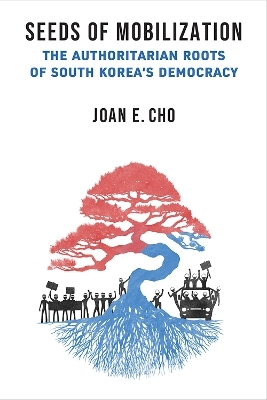
Seeds of Mobilization
The University of Michigan Press (Verlag)
978-0-472-05660-6 (ISBN)
- Titel z.Zt. nicht lieferbar
- Versandkostenfrei innerhalb Deutschlands
- Auch auf Rechnung
- Verfügbarkeit in der Filiale vor Ort prüfen
- Artikel merken
South Korea is sometimes held as a dream case of modernization theory, a testament to how economic development leads to democracy. Seeds of Mobilization takes a closer look at the history of South Korea to show that Korea’s advance to democracy was not linear. Instead, while Korea’s national economy grew dramatically under the regimes of Park Chung Hee (1961–79) and Chun Doo Hwan (1980–88), the political system first became increasingly authoritarian. Because modernization was founded on industrial complexes and tertiary education, these structures initially helped bolster the authoritarian regimes. In the long run, however, these structures later facilitated the anti-regime protests by various social movement groups—most importantly, workers and students—that ultimately brought democracy to the country.
By using original subnational protest event datasets, government publications, oral interviews, and publications from labor and student movement organizations, Joan E. Cho takes a long view of democratization that incorporates the decades before and after South Korea’s democratic transition. She demonstrates that Korea’s democratization resulted from a combination of factors from below and from above, and that authoritarian development itself was a hidden root cause of democratic development in South Korea. Seeds of Mobilization shows how socioeconomic development did not create a steady pressure toward democracy but acted as a “double-edged sword” that initially stabilized autocratic regimes before destabilizing them over time.
Joan E. Cho is Assistant Professor of East Asian Studies, and Assistant Professor by courtesy of Government, at Wesleyan University.
List of Figures
List of Tables
Abbreviations
A Note on Romanization
Acknowledgments
1. Introduction: Re-examining South Korea’s Democratization
2. Industrialization as a (De)stabilizing Force
3. Manufacturing Protests: Ecology of Industrial Complexes and Development of the Labor Movement
4. Learning to Dissent: Education and Authoritarian Resilience
5. From College Campuses to Ballot Boxes: Mobilizing for Democratic Reforms
6. Beyond the Democratic Transition: Democratization and Generational Divide in South Korea
7. Conclusion: Development, Democracy, and Authoritarian Legacy
Appendix: Datasets and Data Sources
Bibliography
Index
| Erscheinungsdatum | 23.02.2024 |
|---|---|
| Reihe/Serie | Emerging Democracies |
| Zusatzinfo | 14 tables, 29 figures |
| Verlagsort | Ann Arbor |
| Sprache | englisch |
| Maße | 152 x 229 mm |
| Themenwelt | Sozialwissenschaften ► Pädagogik |
| Sozialwissenschaften ► Politik / Verwaltung ► Europäische / Internationale Politik | |
| Sozialwissenschaften ► Politik / Verwaltung ► Politische Systeme | |
| Sozialwissenschaften ► Politik / Verwaltung ► Politische Theorie | |
| ISBN-10 | 0-472-05660-3 / 0472056603 |
| ISBN-13 | 978-0-472-05660-6 / 9780472056606 |
| Zustand | Neuware |
| Haben Sie eine Frage zum Produkt? |
aus dem Bereich


